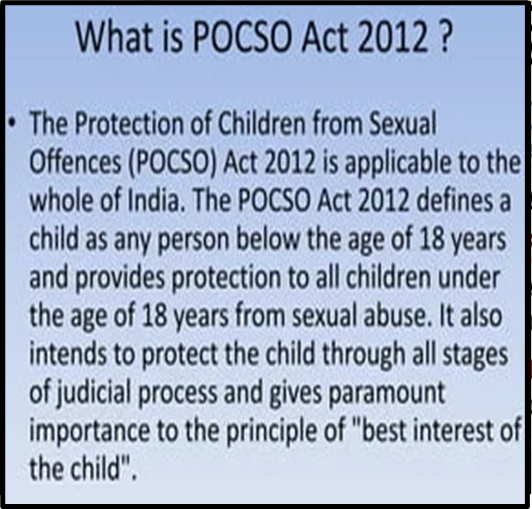DELHI HIGH COURT AFFIRMS WOMEN CAN FACE POCSO CHARGES
Why in the news?
The Delhi High Court ruled that women can be prosecuted under the POCSO Act, clarifying its gender-neutral stance in protecting minors from sexual offences.
source:slideshare
Legal Ruling on Gender-Neutrality of POCSO Act
- The Delhi High Court has ruled that criminal proceedings can be initiated against a woman for committing the offence of “penetrative sexual assault” on a child.
- This ruling clarifies that the Protection of Children from Sexual Offences (POCSO) Act is not limited to men but applies to individuals of any gender.
Case Background and Arguments
- The court’s decision came while hearing a case where the accused, a woman, argued that the charges of “penetrative sexual assault” and “aggravated penetrative sexual assault” should not apply to her because she is female.
- The public prosecutor argued that the POCSO Act is gender-neutral and holds all perpetrators, regardless of gender, accountable for sexual offences against minors.
Court’s Interpretation:
- The court emphasised that the term “person” in Section 3 of the POCSO Act should not be interpreted as referring only to males, and the word “he” within the Act should be understood as inclusive of any gender.
- Consequently, the court ruled that the petitioner, in this case, could be put on trial for the charged offences.
About the Protection of Children from Sexual Offences (POCSO) Act (2012):
Preamble: Objective: The POCSO Act aims to protect children from sexual offences and establish Special Courts for the trial of such offences, with provisions for connected and incidental matters. Major Dates:
POCSO Amendment Act (2019):
Offences Covered Under POCSO Act: Penetrative Sexual Assault:
Aggravated Penetrative Sexual Assault:
Associated Article: |




